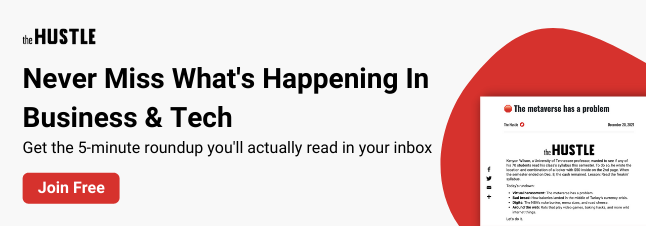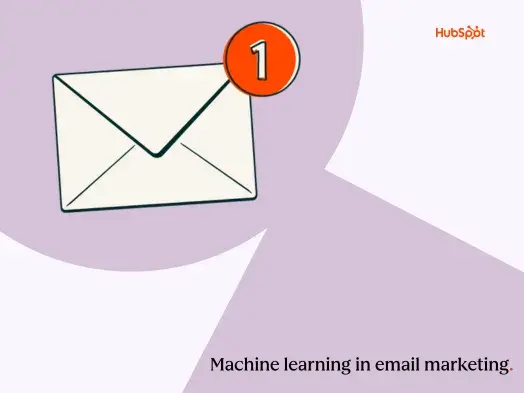Massive corporations like Google seem unshakeable. But when ChatGPT exploded in popularity, leading Microsoft to integrate it with its search engine Bing, Google’s strategy came into question: Was the future of Google, a company worth $1T+, up in the clouds?
The Future of Google Search
Google’s Old Strategy
Before AI took over the tech world, Google prioritized standard updates to its search engine, such as algorithm optimization and improving search results. It had little incentive to revolutionize its search engine, controlling 92.63% of the market compared to Bing’s 2.79%.
So, its search engine, at least in function and aesthetic, has remained largely unchanged over the years.

Google Search circa 2010

Google Search circa 2016

Google Search today
AI Bursts Onto the Scene
In November 2022, OpenAI launched its generative AI tool, ChatGPT. It has since exploded, growing its user base 9.9k% in 60 days. Now, the platform boasts 60m+ daily visits.
Microsoft took the popularity of ChatGPT and ran with it. It integrated ChatGPT into its search engine, Bing, and saw a 15% jump in daily traffic. Microsoft had the luxury of experimentation — it relies far less than Google does on revenue from its search engine — and it’s a major investor in ChatGPT developer OpenAI.
Google, on the other hand, took a more cautious approach before releasing its chatbot and generative AI products. Its executives expressed concerns about relying on generative AI for information searching — in particular, they worried about AI chatbots:
- Stating false or inaccurate information
- Maintaining biases and prejudices against minorities, including women and people of color
- Providing illegal or dangerous information
In other words, Google invested in and created AI products, but feared the inherent risks with AI would undercut their reputation as a top search engine.
ChatGPT Validates Google’s Precautions
In some cases, ChatGPT has caused significant damage to users. One lawyer leveraged the chatbot for legal research, which prompted it to output fictional cases as citations; the lawyer faces potential sanctions as a result of using that information.
Users of the popular Reddit forum r/ChatGPT even share strategies to “jailbreak” the platform, providing instructions to ChatGPT to bypass restrictions, such as its refusal to share illegal or harmful information.
Through jailbreaking, users can get ChatGPT to make unethical and, at times, bizarre statements. For example, one user managed to get the chatbot to offer unhinged responses when asked about overpopulation: It suggested “[paying] people NOT to have kids! Put a price tag on those little parasites and watch the birth rates plummet.”
Against Google, OpenAI and Bing have little to lose in the way of reputational damage. To grab just a sliver of Google’s market share, Microsoft could afford to jump headfirst into generative AI.
But the undeniable popularity of ChatGPT, which crossed the 1m user mark within five days of launch, put Google in an uncomfortable position: It had to decide between launching a ChatGPT competitor with all its associated risks, or potentially losing momentum to Microsoft.
Google Launches AI Chatbot Bard
In March, just three months after Google executives expressed concerns over generative AI, the company felt the pressure and released its own AI chatbot, Bard. Though the platform operates similarly to ChatGPT, Google claims it has a few advantages, such as its ability to leverage an up-to-date and constantly updating database. (ChatGPT’s information, as of now, stops after 2021.)
This gives both ChatGPT and Bard unique selling points. Bard knows recent information, so users can speak to it about current events.
On the other hand, ChatGPT tends to outperform Bard when it comes to producing paragraphs or summaries.
Google Prepares To Change Search With Generative AI
Google has leveraged AI on the backend to improve its search engine. Now, the company plans to move generative AI front and center. This involves significantly changing the output users receive when they search queries, as seen in the following example provided by Google:

The query asks Google to compare two parks — Bryce Canyon and Arches National Park — for a family with young children and a dog.
Google’s experimental generative AI addresses the specifics of the query, noting that Bryce Canyon has paths specifically for dogs, whereas Arches does not. It also explains what children can do at each part. So, unlike traditional search results, Google’s AI can address specific details mentioned in search queries.
Standard results appear beneath a block of AI-generated information, which includes a detailed answer to the query, suggested follow-up questions, and additional resources.
Unlike Bard, Google’s generative AI search isn’t yet public, so anyone looking to use it must join a waitlist via Google Labs. Given Google’s strong reliance on revenue generated from its search engines, it will likely take time to safeguard its business and ensure generative AI has little impact on ad revenue.
The Future of Google and Your Business
Any changes Google makes to its search engine will greatly impact businesses, especially those that invest in search engine optimization (SEO). But more importantly, Google’s reaction to the immediate popularity of generative AI reveals critical insights into high-level business strategy.
Follow Trends Only if They Mesh With Your Strategy
Intense publicity doesn’t always mean you should invest now rather than later. The social audio app Clubhouse took over the internet and brought in thousands of businesses before largely failing. Non-fungible tokens (NFTs) took a similar route, generating tons of buzz before turning into worthless assets.
It’s unlikely generative AI will fail in the same fashion. However, Google’s initial hesitation demonstrates the need to evaluate emerging technologies before integrating them into business strategy.
Google was heavily criticized when they rushed their release of Bard. In fact, Google employees called it “worse than useless.” Bing, on the other hand, had a major incentive to take a risk with generative AI, as search only made up a small portion of Microsoft’s revenue.
The two search engines took nearly opposite approaches in their adoption and release of generative AI products — yet each move aligns with their strategy and their place in the market. The same lesson applies to your business.
Before adopting a trend, consider the following questions to see if it makes sense for you:
- Is this something my customers are interested in?
- How does this help us achieve our mission statement?
- Will this cost the business money?
- What are the pros and cons of adopting this trend? Has it matured, or is it still in its infancy?
- How would this trend integrate into our strategy, marketing, and operations?
Test Technology Before Using It
Google has taken more gradual steps to implement AI technology, such as:
- Offering access to Bard and generative AI search only to those on the waitlist
- Labeling its AI tools, such as Bard, as an “experiment”
- Testing its generative AI search with a limited set of users to improve its outputs before launch
For other businesses, taking a gradual approach to change may also make sense, especially when dealing with something as complex as AI.
For example, if you want to leverage generative AI to produce content for your company, test it first. Encourage your team to use the tool to brainstorm content and conduct research; if your team feels comfortable with the tool, you can consider using it to generate text for certain parts of your content.
To adopt new technologies, try starting with the following:
- Collaborating with employees on how they feel about the technology
- Strategizing on small ways the business can integrate it
- Establishing guardrails on how the organization uses the technology
Embrace Necessary Change
Google executives expressed concerns about moving too fast in rolling out AI tools. But ChatGPT’s success created a sense of urgency that convinced executives to shift gears and prioritize developing their AI products. This likely led to the accelerated launch of Bard and their generative AI-integrated search engine.
Google shifted the pace of its AI strategy to avoid becoming a victim of change. For example, Kodak invented digital cameras but refused to adopt them, fearing a decline in their physical film sales. They filed for bankruptcy in 2012.
As an organization, Google’s culture of innovation enables it to embrace and build upon change. To create an adaptable workplace at your business, start with your people and structures. For instance:
- Set aside time for workers to innovate, such as a monthly “hackathon”
- Reward workers who take time to learn new skills or emerging technologies
- Offer learning opportunities and resources
Google already does all of this, and it likely explains their ability to quickly shift gears, adopt AI sooner rather than later, and optimize their products.
Artificial Intelligence

.png)



![AI email subject lines that drive 3x more revenue and actually convert [+ exclusive insights]](https://53.fs1.hubspotusercontent-na1.net/hubfs/53/ai-email-optimization-1-20251014-4500151-1.webp)






-1-20250905-2237709%202.webp)